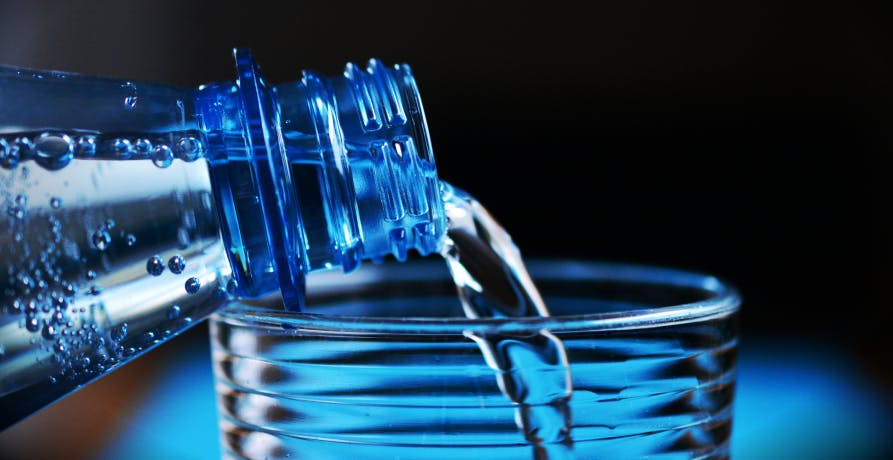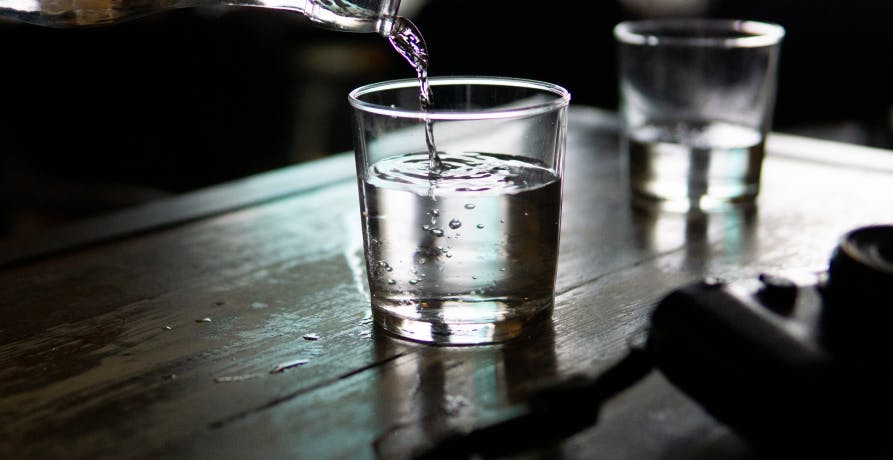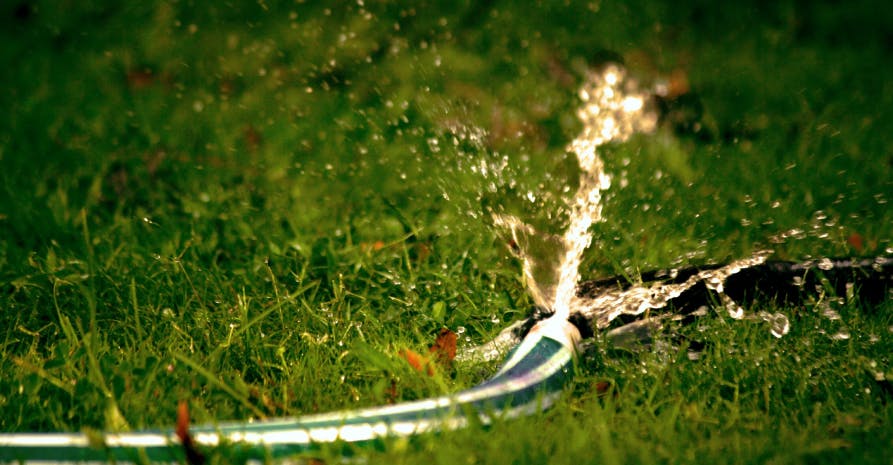
What are the 3 Pillars of Corporate Sustainability?
In this article, we'll explore what the 3 pillars of corporate responsibility are, why they're important, and how businesses can turn them into practical action.
ESG / CSR
Industries



When it comes to fighting against climate change, the first thing that comes to mind for most people is seeking ways to reduce their electricity usage or prevent waste by recycling more – but aiming to cut back on water usage is just as important when it comes to saving the planet.
Preserving air quality is essential in protecting human life, but ensuring that there is clean, viable water is equally important to sustain all forms of life on Earth. This is because water is an essential element for the majority of living organisms, especially humans, whose bodies are made up of around 60% of water. If water isn’t managed well, people could experience even more shortages with intense droughts caused by climate change, all life on the planet will suffer the consequences – and existence might even be threatened.
Luckily, conserving water doesn’t have to be as difficult a task as many believe it to be. Why is conserving water important, and how could both individuals and companies aid in the water crisis and help to reduce their water usage?
Water usage, more commonly known as water consumption, is the act of using water for anything – whether it be for laundry, doing dishes, washing your hands, or taking a shower. Looking over the day of an average person, it may seem like not that much water is used – but in reality, the average American household uses around 300 gallons of water per day.
That’s enough water to fill up 5,765 eight ounce water bottles or cans of soda.
In the U.S., individuals are estimated to use around 100 gallons of water per day alone. This excessive consumption of water comes from simple activities such as making your morning coffee, brushing your teeth, doing a load of laundry, or taking a bath to unwind at the end of the day. Ultimately, any activity that uses even the smallest amount of water can be considered a part of water usage.

Most of the time, people talk about shortening their showers in order to cut back on their water usage – but preserving water requires a lot more effort than timing how long it takes to shampoo your hair in the morning.
Why is water usage so important in the midst of excessive greenhouse gas emissions and reduced air quality – aren’t those more threatening than the lack of clean, available water?
Water is an imperative element for all forms of life on Earth, and the sparse nature of clean drinking water has become even more worrisome in the midst of climate change – where many climates are growing drier and hotter, resulting in a supply and demand of water that can no longer be met.
It’s ironic to think how the Earth is often referred to as the “water planet” – when in reality, not much of the Earth is able to provide viable water for the majority of life that dwells on the planet. If you didn’t already know, only around 1.2% of water in the world can be considered as freshwater – with only 0.3% of that freshwater being found in lakes, rivers, or swamps. After that calculation has been recognized, the importance of conserving water usage becomes more evident – seeing as that 1.2% of water has to care for the billions of people and other living organisms that roam the planet.
Reducing water usage is important to sustain life on the planet not just to be able to hydrate or take a shower, but because a multitude of other resources are dependent on water for survival. This is because reducing water usage can help to prevent potential damage to wastewater treatment plants or the systems used to distribute water amongst the public. Practicing water conservation techniques also helps to prepare for when the resource of water becomes even more sparse than it already is – allowing for future flexibility and creativity when there isn’t enough water to be used for leisure purposes such as by taking a bath or a long, hot shower.
In fact, many industries, such as the construction industry – rely on water to create buildings, as wood inevitably absorbs water in the process of construction. Ultimately, reducing water is imperative as it is a limited and vital resource necessary to sustain all endeavors of life on the planet.

Conserving water usage may feel as simple as taking shorter showers and filling up the bathtub a little lower than you usually would, but the reality is – there are several challenges to be faced in the effort of trying to reduce water usage.
For instance, in order to effectively reduce the amount of water someone uses on a daily basis – it is essential to first understand what the current availability of water is, as some states may be more prone to excessive droughts than others. A great example of this are the seven states that border the Great Salt Lake – which are now being forced to make water cuts before the federal government will have to step in and take action. In short, cutting back one’s shower time from 7 minutes to 3 minutes may make a world of difference in the state of Maryland, but not so much in California.
In a sense, seeking to conserve water presents the same predicaments for companies trying to reduce their emissions or someone trying to lose weight – given it is difficult to set effective and tangible reduction goals if there is little information provided from the start. Many people are aware of the carbon footprint created by their cars or from their fashion choices, but remain uneducated on how their water consumption also harms the environment.
Even if tactics are implemented to successfully reduce water usage, the problem is that a growing population continues to threaten the effectiveness of these water reduction measures. In addition to this, those in developing countries do not even have access to clean water – with travelers to places like Bali, Indonesia having remain cognizant of the risk of contracting “Bali belly” – or the term used when someone ingests water from the developing country with microorganism their bodies are not accustomed to. Ultimately, one of the problems with reducing water usage is that clean water isn’t equally distributed or available around the world – much like food. There are countries with populations dying due to world hunger, and yet – countries like the United States produce almost 120 billion pounds of food that is thrown away each year.
Is there a way to meet in the middle when it comes to mitigating excessive water consumption?

Unbeknownst to most, there are a million ways to help cut back on your water consumption on a daily basis, and no – not just by taking shorter showers.
One of the quickest ways that people deplete their daily water usage is when they go to the faucet to pour a glass of water – as many people will wait for the water to start running cold before they fill up their glass. This can take several seconds, especially if someone just washed their dishes, presumably in hot water, by hand. Therefore, a way to prevent the need to run water before pouring a drink is to keep a bottle of drinking water handy in the fridge to prevent leaving the sink on for too long waiting for it to elicit a change in temperature. Another tip for when it comes to the kitchen sink is to wash dishes in a pool of water instead of leaving the sink running. By filling up the sink first, it ensures that the dishes can be rinsed at any time without the need to leave the faucet running while still lathering up the dirty dishes with soap.
There are other tips to reduce water usage that may seem trite and ultimately ineffective, but they would make a difference over time. For instance, when cooking vegetables, remember that vegetables will release water on their own while cooking – meaning not as much water is necessary to boil vegetables as you might think. Another common tip people forget is to check their house for leaks in unexpected places: such as laundry rooms, toilets, and garden hoses.
If you can’t bear shortening your shower time, there’s something even better you can do – and that’s turn the water off while you’re exfoliating, shampooing, conditioning, or shaving. This way, you still get the full “self-care” shower experience without leaving the water running. In cities where the water is hard and opting for rinsing your hair with bottled water (i.e., Paris or New York) is the better haircare option – try to collect your own rainwater when you can. This can also help to reduce plastic waste.
The use of water is known to be highest in the summer – meaning this is the best time to practice all of these water conservation techniques. For example, don’t use a hose to clean your driveway – but opt for a broom or leaf blower instead of spraying it clean. Also, lawns don’t need to be watered everyday – turning the sprinklers off every other day can help immensely in reducing water usage.
Are the tips to reduce water usage for the average person the same for big companies?

The difference between making an effort to reduce water usage in a single household and a company is how many people must commit to the collective effort to avoid the excessive use of water. Therefore, to get started – companies should first take a look at their previous water bills to ensure that no leaks are occurring within the premises of the building. If the company’s office hasn’t installed automatic faucets, they should remind employees to tightly shut off sinks to prevent excess water drippage. Companies can also seek third party assistance through a plumber to ensure that all of their devices using water are running smoothly to ensure energy efficiency.
Most importantly, businesses should strive to educate their employees on the importance of conserving water, because if they remain unaware of the impact that sparse water reserves can have on not only their business but the entire planet – they will be much more likely to aid in efforts to reduce water usage.
Extensive water usage has proven a problem in countries like the U.S., especially as climate change continues to provoke intense droughts and heatwaves where the demand for water cannot be met. However, these tips should prove useful for both individuals and companies looking to reduce their water usage.
If reading this article about reducing water usage has made you interested in reducing your carbon emissions to further fight against climate change – Greenly can help you!
Figuring out where to cut back and become more sustainable, such as avoiding going overboard on your allotted water usage, can be tricky – but Greenly’s got you covered. Click here to book a demo and learn more about how we can help you to measure and reduce your emissions and become a more sustainable company.